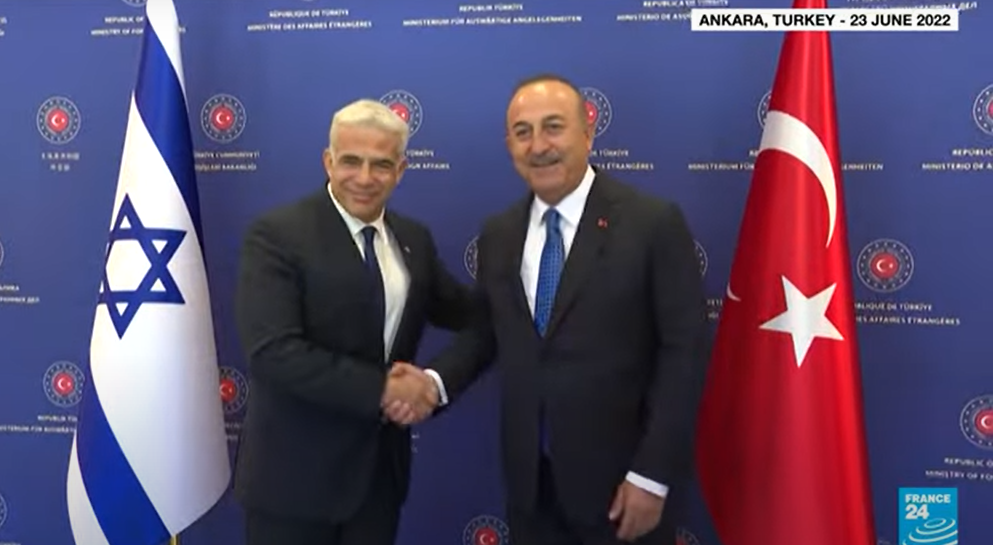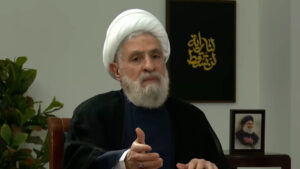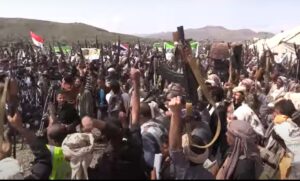The process of rapprochement between Israel and Turkey culminated in the joint declaration of the two countries on the full normalization of relations between them and the mutual return of the ambassadors.
Israel will appoint a new ambassador to Turkey and in Jerusalem it is estimated that president Erdogan will soon visit Israel, for the first time since his last visit in May 2005.
President Erdogan has moderated his statements against Israel because of Turkey's interests and his personal interests to survive in power, but occasionally he releases an anti-Israeli statement, during the last round of fighting of Israel's against the Islamic Jihad in the Gaza Strip he once again accused Israel of killing Palestinian children..
The direct Israeli flights to Turkey to Istanbul and Antalya will also be renewed, which should strengthen the new romance in relations between the two countries.
Erdogan already announced a new foreign policy over a year ago and is trying to improve his regional relations with Egypt, with the United Arab Emirates and now also with Israel.
Israel's relations with Turkey in the last decade have been stormy and characterized by political crises.
In the past year, the two countries have made a considerable effort for a renewed rapprochement, president Herzog visited Turkey last March and met with president Erdogan, last May the Turkish foreign minister Mevlot Çebusulu visited Israel, the first visit by a Turkish official to Israel in the last 15 years.
One can understand the motives of president Erdogan and his new strategy, he wants to break the isolation of his country through renewed normalization with its old regional rivals: Israel, Egypt, Saudi Arabia and the United Arab Emirates, the Turkish economy is in a difficult situation and Erdogan is trying to encourage foreign investment and tourism in his country.
The energy issue is also important in Turkey's rapprochement with Israel, at the beginning of the year Erdogan expressed a willingness to cooperate regarding the natural gas pipeline in the Mediterranean sea, this is an important issue because European countries are trying to reduce their dependence on Russian natural gas as a result of the Russian military invasion to Ukraine.
From Israel point of view, the full normalization with Turkey is contributing to regional stability and the economy, however, why did Israel have to rush and give president Erdogan so quickly what he wanted while he has steadfastly refused for more than 10 years to close down the offices of the military wing of Hamas in Istanbul that direct terrorist acts against Israel.
Sources in the foreign ministry say that prime minister and foreign minister Yair Lapid hastened to agree to full normalization of relations with Turkey in order to try and present a political achievement before the general elections in November.
According to these sources, it was possible to exert more political pressure on Turkey to close down the Hamas office in Istanbul.
Hamas branch in Istanbul
Hamas leader Ismail Haniyeh moved with his family members from the Gaza Strip to live in Istanbul a few months ago.
The military wing of Hamas has a large office in Istanbul which is staffed, with terrorists who were released in the Shalit prisoners exchange deal.
Part of their activity involves directing terrorist attacks in the West Bank and attempts to recruit to the ranks of Hamas, Hezbollah and Iran students from among Israeli Arabs studying or visiting in Turkey.
The problem of Hamas presence in Turkey has not been resolved
In recent months, the Turkish authorities have opened a dialogue with the leadership of Hamas to find a solution to Israel's claims about the terrorist activities of the Hamas military branch in Istanbul.
Turkey made it clear to the Hamas leadership that it is trying to find the "golden path" and does not want to close down the Hamas offices in Istanbul so as not to be seen as surrendered to Israeli pressure and damage its ties with Hamas for the Israeli gas.
On the other hand, it wants to show Israel that it checked its claims and found that they are baseless. The assessment in Hamas is that some low rank operatives of the military wing in Istanbul will be politely asked to leave Turkey for Qatar or Lebanon, but the branch offices will continue to operate, president Erdogan will be able to hold the stick from both ends.
President Erdogan is a senior representative of the "Muslim Brothers" movement and a supporter of Hamas, whom many Muslims also see as a leader of the Muslim world who will liberate Jerusalem in the future. He deals with Israel and its leaders in a pragmatic and self-interested approach, out of cold considerations and without a hint of ideology, like any other politician in the world. , out of a desire to survive in power and survive on his seat.
Erdogan is the same old Erdogan, there has been no change in his attitude towards Israel, only the tactics have changed temporarily, his lust for power prevails over Islamic values and ideology.
According to sources in Hamas, Erdogan conveyed messages that the new page he is opening with Israel does not constitute support for Israeli policy and its Zionism, his warm attitude towards the resistance movements will not change and he will not close down
the branch of the military arm of Hamas in Istanbul despite Israel's demand.
A senior Hamas official said: "we are sure that Erdogan would not betray us, he is part of us and sees Hamas as the representative of the Palestinian people".
Israel had to increase the political pressure on Turkey to close down the Hamas office in Istanbul which is used to direct terrorist activities in the West Bank, a renewed normalization of Israel with Turkey and a return to full relations before this happened is a serious political mistake.
This office violates Turkish law and international laws, the fact that president Erdogan allows it to continue operating, despite Israel's demands to shut it down and despite Israel presenting Turkish intelligence with incriminating material about its activities, turns Turkey into a state that sponsors terrorist organizations.
Yoni Ben Menachem
Senior Middle East Analyst




